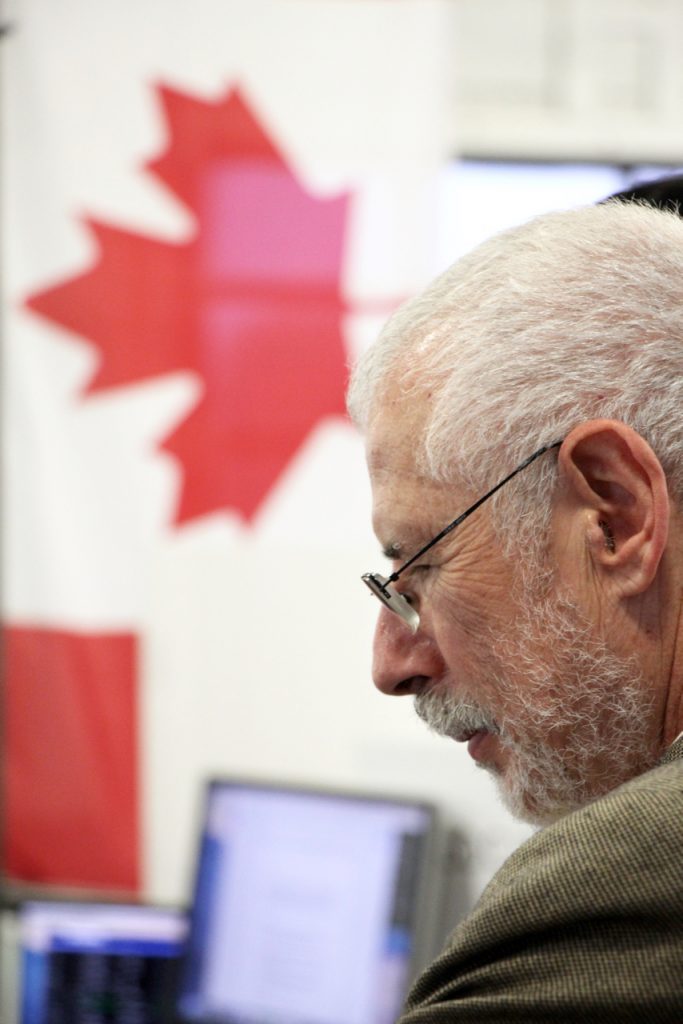Waterloo Region could be a magnet for global entrepreneurial enterprise. The question is: Does it want to be?
This was the bold question thrown out by serial entrepreneur Steve Blank, one of the “Godfathers of Silicon Valley,” who made a rare speaking appearance outside California, at the Waterloo Innovation Summit.
The summit, which concluded Friday after two full days of sessions, was co-hosted by Communitech and the University of Waterloo. Blank was speaking to 250 participants in the final session in the Communitech Hub, capping a day of golden predictions for the area’s future.
Blank, an author, academic and creator of the Lean Startup movement, was the day’s feature presenter, telling stories from his 30 years as an entrepreneurial veteran, about the beginnings of Silicon Valley, his views on the essence of startup founders (“startups are not run by engineers, or MBAs; they are run by artists”) and the ubiquity of entrepreneurship (“The price of being a disruptor has plummeted in almost every industry”).

Steve Blank visits the University of Waterloo Velocity Garage at the
Communitech Hub Sept. 18, 2015. (Communitech photo: Anthony Reinhart)
He praised the Waterloo Region innovation ecosystem as a “mythical place” that produces world-class graduates and products, but laid down a stark challenge:
“Do we want to be a farm team for Silicon Valley? . . . Do you believe this is a jobs program for people who live here, or are you trying to attract people to come here? . . . That’s a meta-discussion that needs to be had.”
He told the audience that he came to the summit “because I’m a huge fan of the region… it’s about where you want to take it.
“This place is more capable than any other ecosystem in the world in hitting it out of the park and it hasn’t – people should be unsatisfied with that.”
Earlier in the day, it was Ajay Royan, venture capitalist and co-founder (with PayPal veteran Peter Thiel) of San Francisco-based Mithril Capital Management, who looked at the long game.
Royan said that Canada is one of the few places in the world where you can build a startup into a global player: “That’s cool, that’s really cool. You can run a global corporation here and fully staff it.”
Royan advised the audience to remain focused on the business of doing business: “You can’t invest in tech. You can only invest in business. You need to invest in business that is durable and valuable in the long run.”
With breaks for networking, summit participants also heard from Jonathan Ortmans, President of the Global Entrepreneurship Network, an enterprise outreach program that involved eight million people in 160 countries this year.
Ortmans says Canada has advantages in the global entrepreneurial landscape, especially its values: “You always had a set of entrepreneurial values that other countries are having to learn.”
Ortmans says that his three days in Toronto and Waterloo “have been so exciting. You have amazing catalysts here…. You’ve very blessed with smart people who seem quite selfless in their approach.”
And it won’t be his last visit to Canada. Next year, he told the audience, his organization will launch its own GEN Canada operation.
The Friday sessions capped two days of sessions with venture capitalists and emerging innovators. There were arguments for, and against, government intervention in (or support for) private sector enterprise, and entreaties for more “insane investors” to take risks in the Canadian innovation ecosystem. Summit participants exchanged business cards and email addresses, and collected ideas and energy.
How to top all that for next year? By expecting to do it again, with some of the best in the business.

